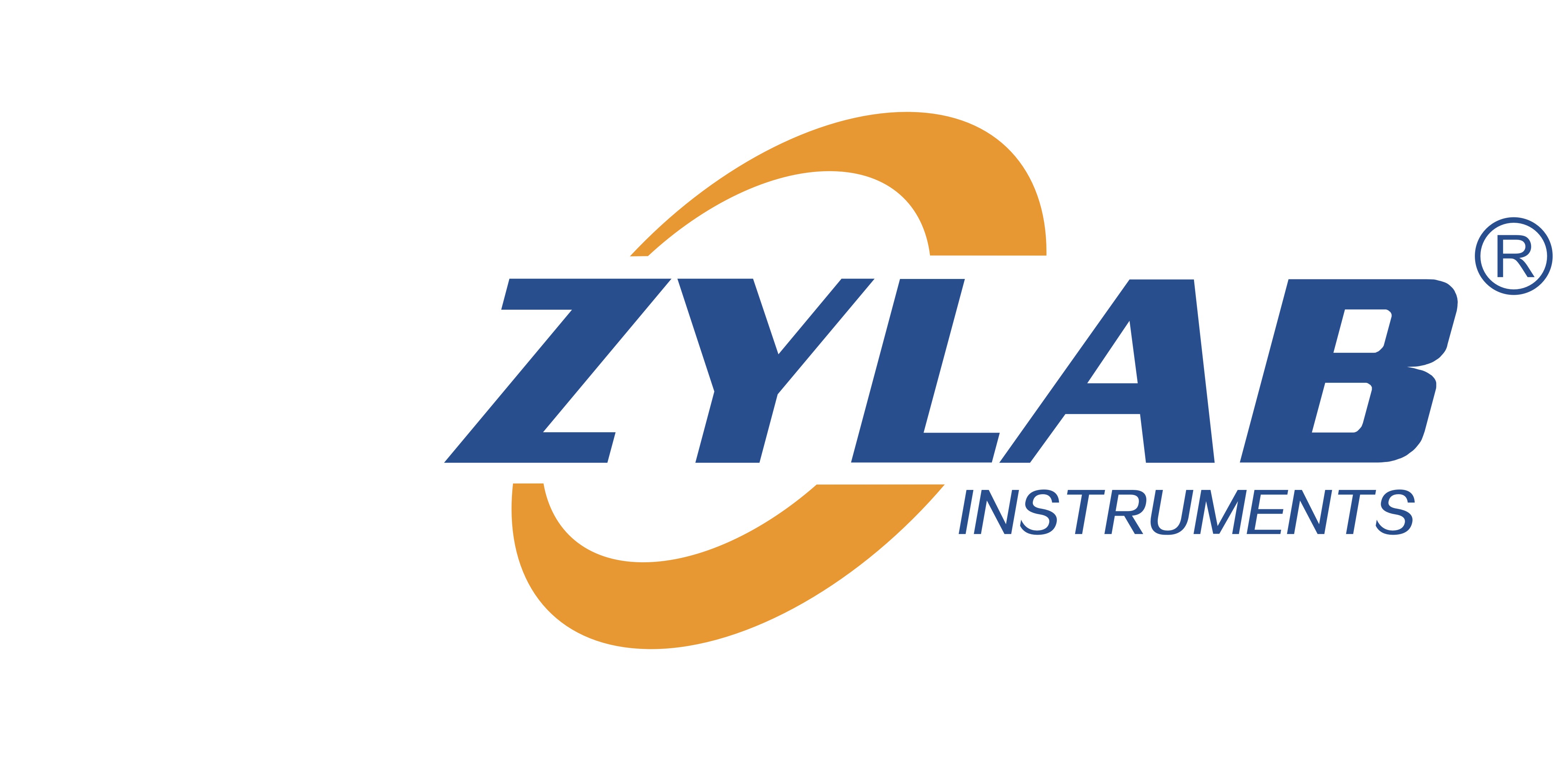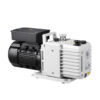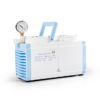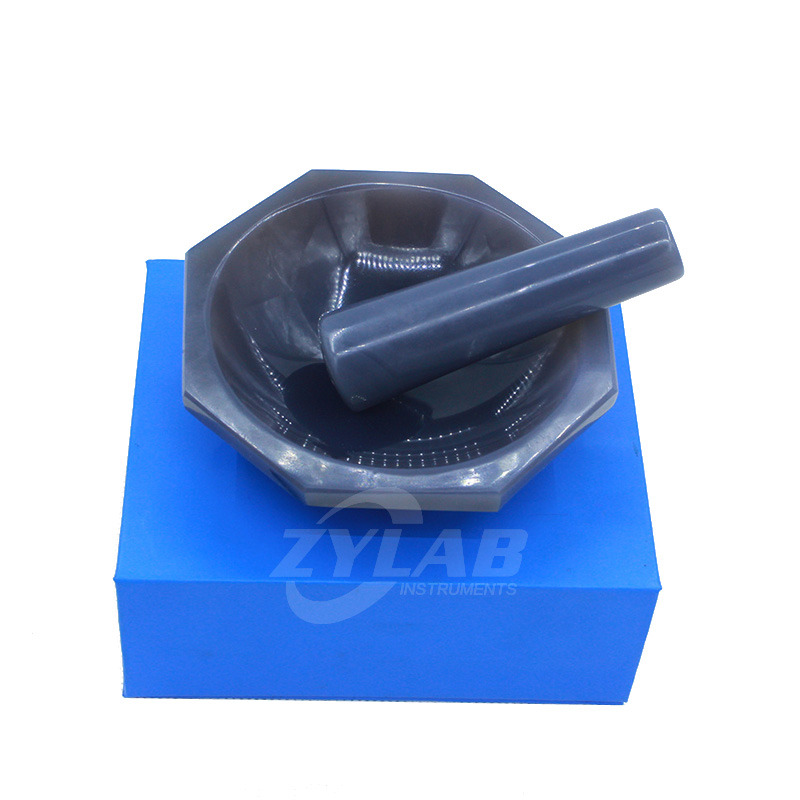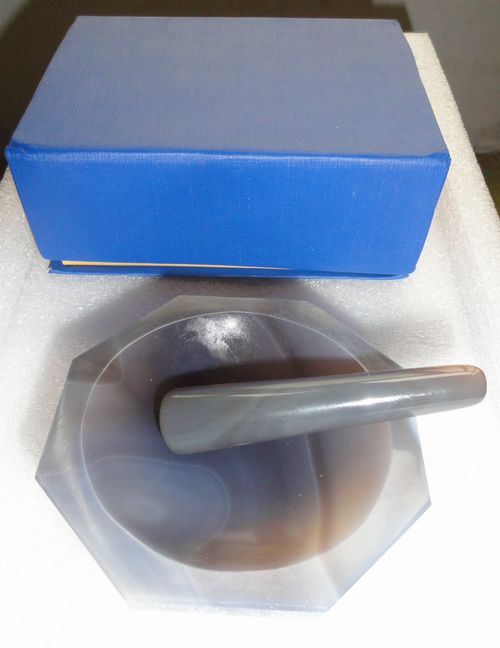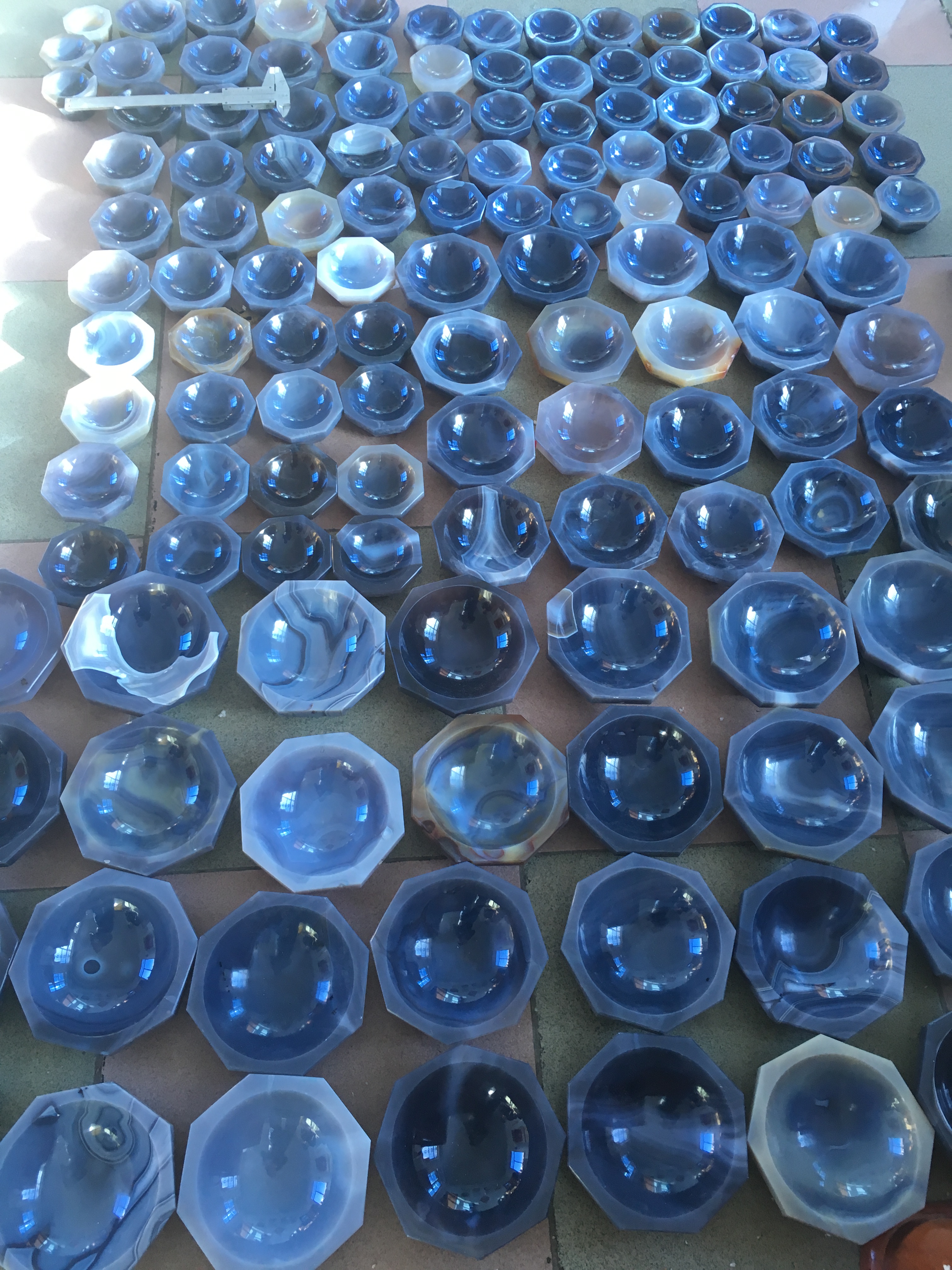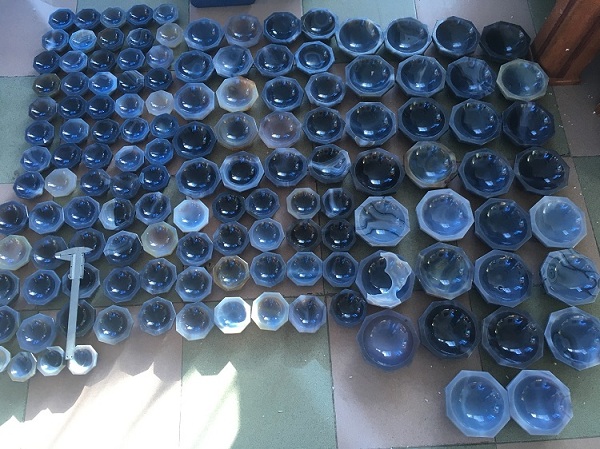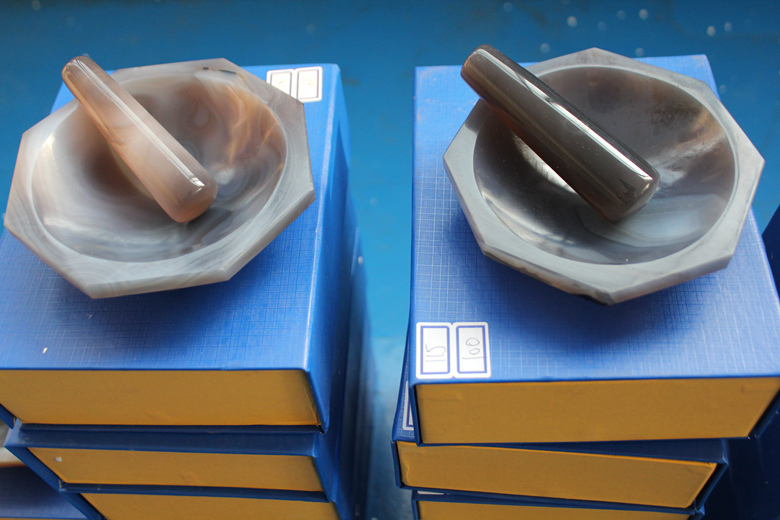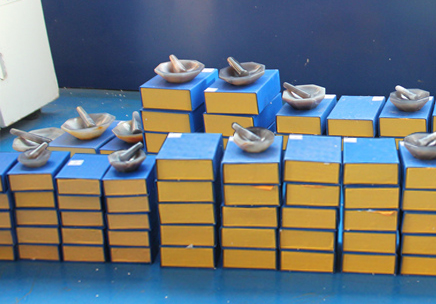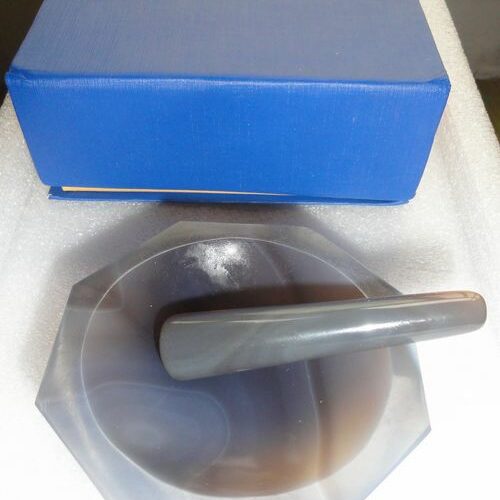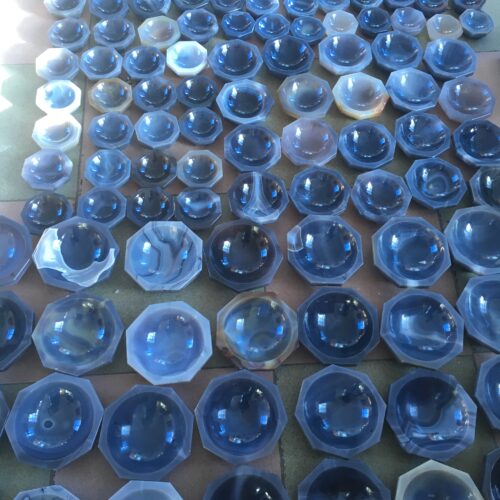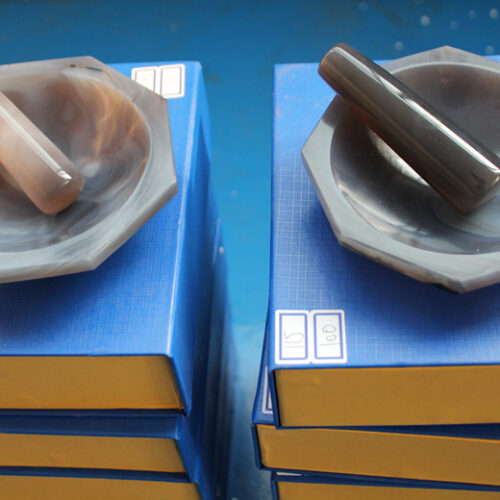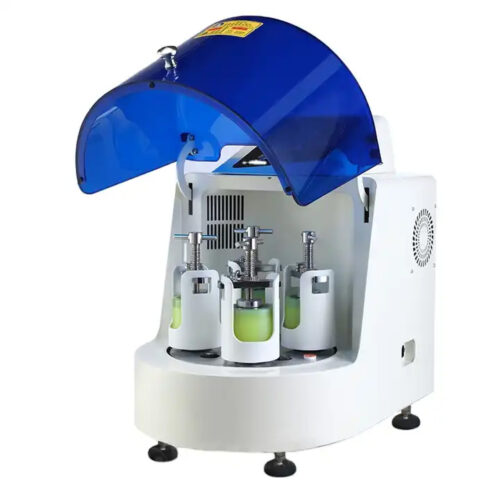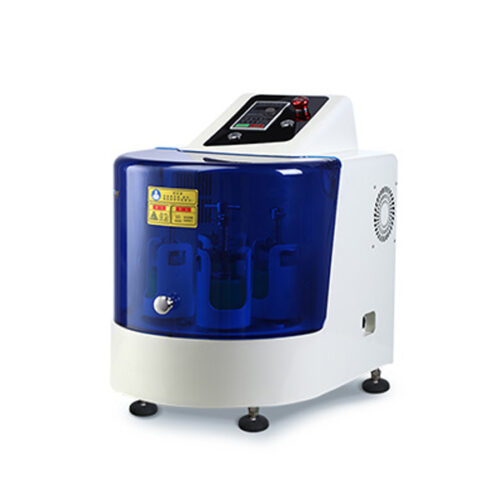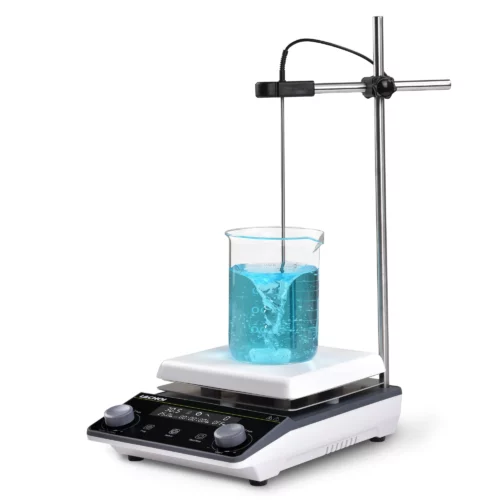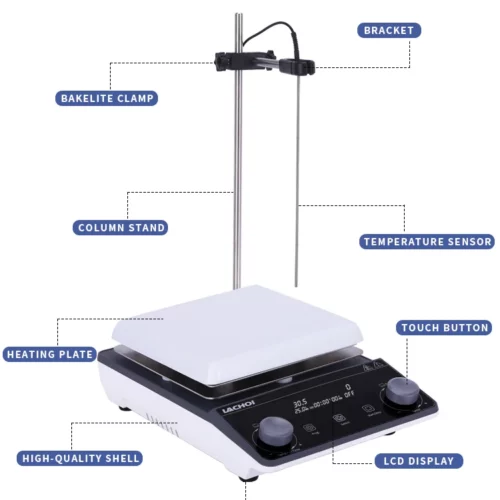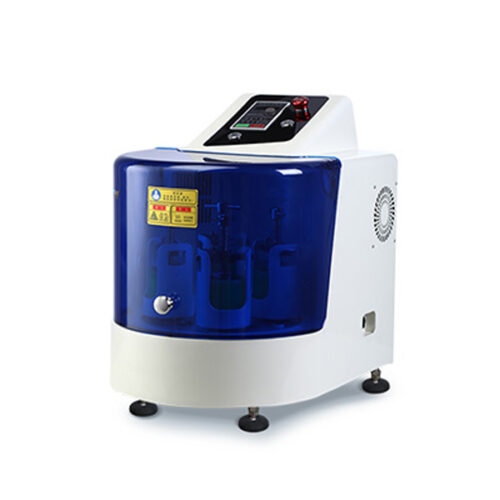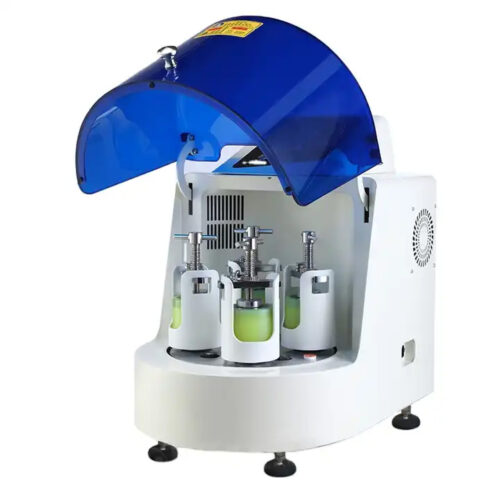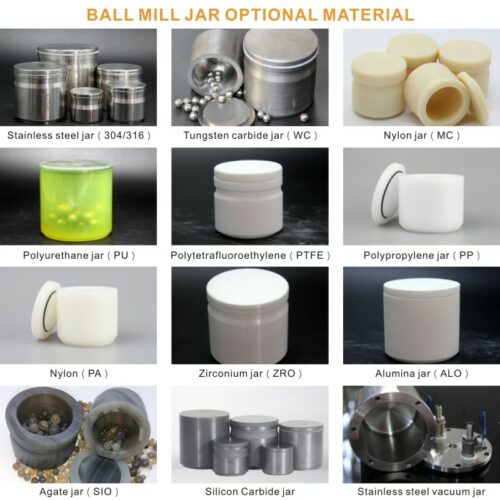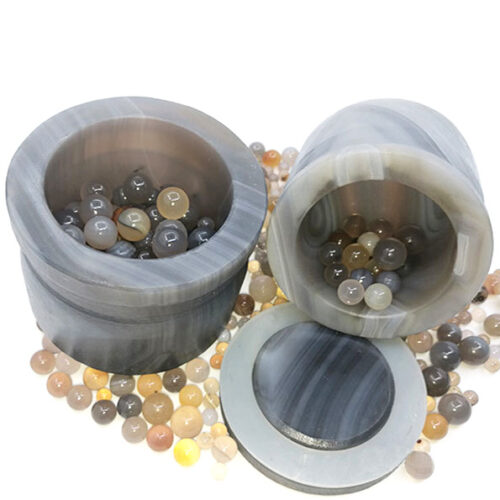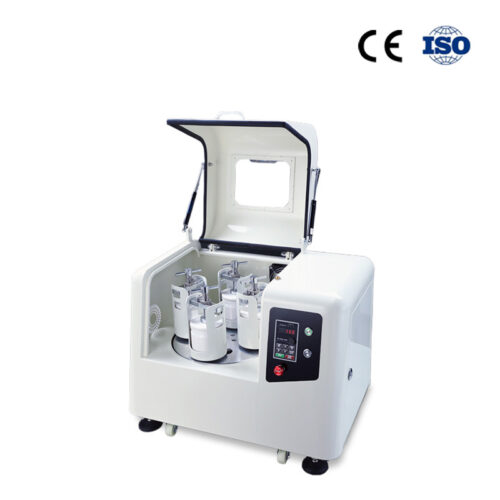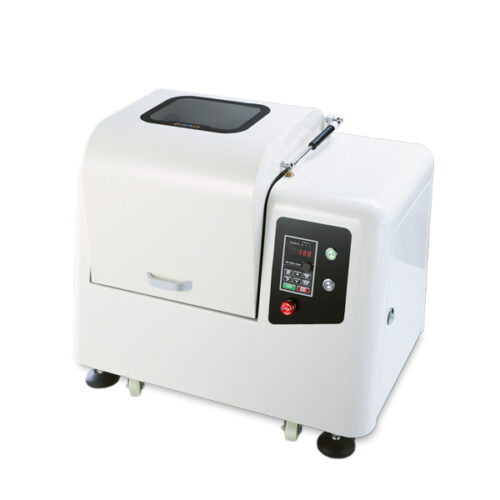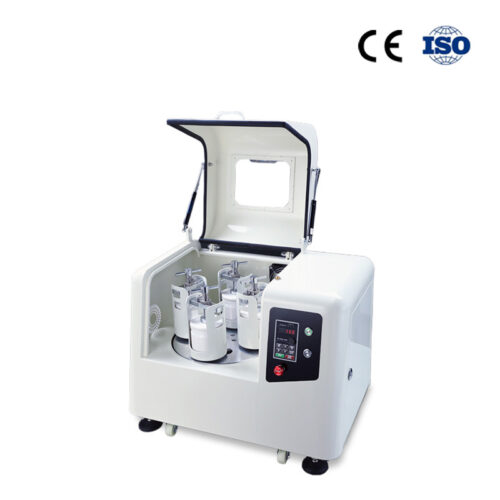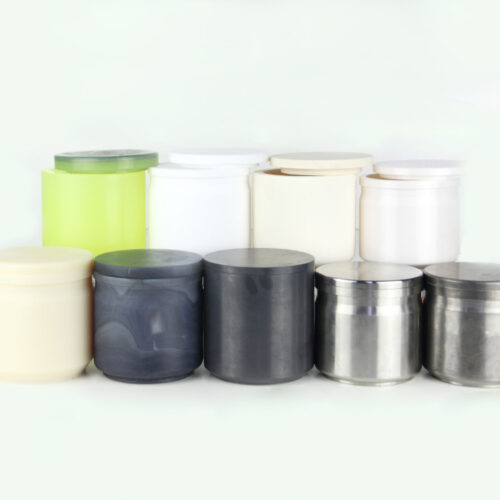Agate Mortar with Pestle Set for Lab Use
Introduction
ZYLAB agate mortar is a type of mortar made from nature agate. It is commonly used in laboratories and scientific research settings for grinding, pulverizing, and mixing materials.Agate mortars’ durability, chemical inertness, and superior grinding capabilities make them a preferred choice in laboratory applications.
Key Features:
- Crafted from purity nature agate for superior performance.
- Crack-free and impurity-free, offering exceptional durability and wear resistance.
- High-gloss finish with excellent corrosion resistance, suitable for use with abrasive materials in acidic environments
Chemical Properties:
| Component | SiO2 | MgO/CaO/Mn2O3 |
| wt% | 97.26 | 2.74 |
Agate Physical Property:
| Specific Gravity | Bulk Weight | Mohs Hardness | Modulus of Elasticity | Color |
| 2.65Kg/dm³ | 1.5kg/L | 7.2-7.5 | >70Gpa | Nature |
Specifications of ZYLAB Agate Mortar:
| No | Model | Specification |
| 1 | ZYLAB-M-50 | Dia 50x40x21mm |
| 2 | ZYLAB-M-60 | Dia 60x50x30mm |
| 3 | ZYLAB-M-70 | Dia 70x60x30mm |
| 4 | ZYLAB-M-80 | Dia 80x70x33mm |
| 5 | ZYLAB-M-90 | Dia 90x75x33mm |
| 6 | ZYLAB-M-100 | Dia 100x80x37mm |
| 7 | ZYLAB-M-110 | Dia 110x90x40mm |
| 8 | ZYLAB-M-120 | Dia 120x100x42mm |
| 9 | ZYLAB-M-130 | Dia 130x108x42mm |
| 10 | ZYLAB-M-140 | Dia 140x120x55mm |
| 11 | ZYLAB-M-150 | Dia 150x130x65mm |
| 12 | ZYLAB-M-160 | Dia 160x140x68mm |
| 13 | ZYLAB-M-170 | Dia 170x150x75mm |
| 14 | ZYLAB-M-180 | Dia 180x160x77mm |
| 15 | ZYLAB-M-190 | Dia 190x170x60mm |
| 16 | ZYLAB-M-200 | Dia 200x180x65mm |
| 17 | ZYLAB-M-210 | Dia 210x190x70mm |
| 18 | ZYLAB-M-220 | Dia 220x200x75mm |
Applications of Agate Mortar:
Agate mortars find various applications in scientific research, laboratory work, and material analysis. Here are some common applications:
1. Sample Preparation: Agate mortars are widely used for sample preparation in analytical chemistry, geology, and materials science. They are used to grind and pulverize solid samples, such as minerals, rocks, and metals, into fine powders for subsequent analysis.
2. Powder Mixing: Agate mortars are suitable for mixing different powders or blending substances together. They provide an effective means of homogenizing samples and ensuring uniformity in compositions.
3. Pharmaceutical Research: In pharmaceutical laboratories, agate mortars are used to grind and mix substances for formulation development, drug analysis, and quality control. They are particularly useful when working with sensitive or reactive compounds that need to be ground without contamination.
4. Spectroscopy: Agate mortars are used in spectroscopic analysis, such as infrared spectroscopy (IR) or X-ray diffraction (XRD), where samples need to be finely ground and prepared as thin films or pellets for measurement.
5. Material Characterization: Agate mortars play a role in materials science research, assisting in the preparation of samples for various characterization techniques like scanning electron microscopy (SEM), transmission electron microscopy (TEM), or energy-dispersive X-ray spectroscopy (EDS).
6. Gemology: Agate mortars are also used in the field of gemology to prepare thin sections or polish gemstone samples for analysis under a microscope, facilitating identification and study of gemstones.
7. Archaeology and Paleontology: Agate mortars are employed in archaeology and paleontology laboratories to grind and process artifacts, bones, or fossils for further analysis, dating, or preservation.
It’s important to note that the choice of mortar and pestle material depends on the specific requirements of the application. Agate mortars are preferred when high purity, low contamination, and resistance to abrasion are critical factors in the grinding and mixing process.
Benefits of Agate Mortar:
The use of agate mortars offers several benefits in laboratory and scientific applications:
1. Chemical Inertness:
Agate is a chemically inert material, meaning it does not react with most substances. This property makes agate mortars ideal for grinding and mixing materials without introducing contamination or altering the chemical composition of the samples. It ensures the integrity of the analyzed substances and maintains the accuracy of experimental results.
2. Abrasion Resistance:
Agate is a hard material with excellent abrasion resistance. Agate mortars can withstand repeated grinding and crushing without wearing down or losing their shape. This durability allows for consistent and precise sample preparation over extended periods of use.
3. Contamination-free Grinding:
Agate mortars prevent cross-contamination between different samples. The hard and smooth surface of agate minimizes the risk of residual material sticking to the mortar, ensuring that subsequent samples are not contaminated by previous ones. This is particularly important in sensitive applications where even small traces of contamination can affect results.
4. Versatility:
Agate mortars can be used for a wide range of materials, including minerals, rocks, metals, pharmaceutical compounds, and more. They are suitable for grinding both hard and soft materials, providing versatility in sample preparation.
5. High-Quality Sample Preparation:
Agate mortars allow for fine and uniform grinding, resulting in high-quality powdered samples. The consistent particle size obtained through agate mortar grinding promotes accurate and reproducible analysis in various techniques such as spectroscopy, microscopy, and elemental analysis.
6. Longevity:
Agate mortars are known for their long lifespan due to the hardness of the material. With proper care and maintenance, agate mortars can withstand frequent use and remain functional for an extended period.
7. Aesthetics:
Agate mortars possess natural beauty due to the unique patterns and colors found in agate stones. While aesthetics are not directly related to their scientific functionality, the visually appealing nature of agate mortars can enhance the laboratory environment and provide a pleasing aesthetic experience.
Overall, the benefits of using agate mortars include their chemical inertness, abrasion resistance, contamination-free grinding, versatility, high-quality sample preparation, longevity, and aesthetic appeal. These qualities make agate mortars a valuable tool for numerous scientific disciplines and ensure reliable and accurate results in laboratory analyses.
